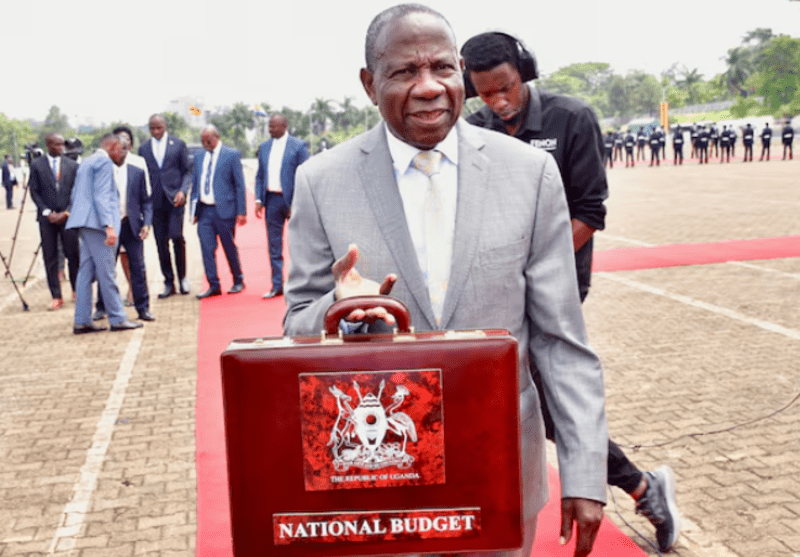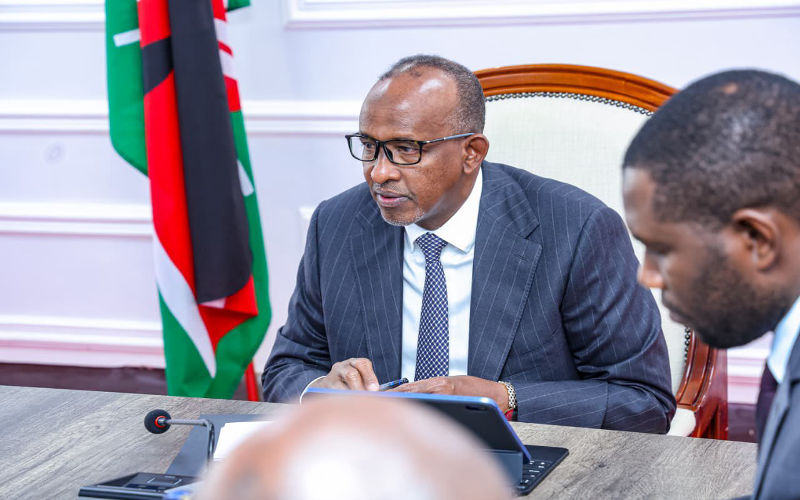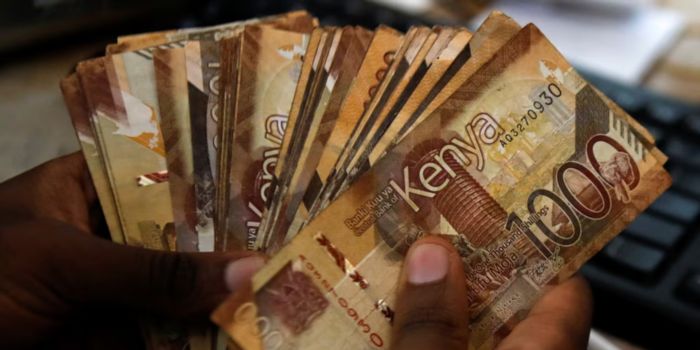Uganda to curb commercial borrowing to limit debt build-up

Finance Minister Matia Kasaija said in a budget speech that total public debt stood at $24.7 billion at the end of last year and was seen rising to $25.7 billion by the end of this month.
Uganda hopes to limit rising debt by focusing on concessional borrowing and curbing commercial loans next fiscal year, its finance minister said on Thursday, after a credit rating downgrade last month.
The East African country's public debt has been mounting as the government of President Yoweri Museveni splurges on big infrastructure projects, prompting warnings from its central bank.
More To Read
- Uganda to host two million refugees by end of 2025 due to escalating crises - UN
- Ugandan, South Sudanese military leaders hold talks amid border dispute
- Border tensions flare as Uganda and South Sudan trade blame over deadly clash
- Uganda elections: FDC party confirms Nandala Mafabi as presidential candidate for 2026
- Kenya and Uganda sign 8 new MoUs to boost trade, infrastructure and regional integration
- South Sudan confirms deadly border clash with Ugandan forces
In May, Moody's lowered Uganda's sovereign rating, citing increasingly constrained financing options.
Finance Minister Matia Kasaija said in a budget speech that total public debt stood at $24.7 billion at the end of last year and was seen rising to $25.7 billion by the end of this month.
Debt service costs excluding domestic debt redemptions were projected to swallow 40.3% of domestic revenue in the fiscal year that starts in July, up from 33.4% in the current year.
Uganda's government says borrowing has been used to drive economic growth, which has been faster than many of its African peers since the Covid-19 pandemic.
The economy was expected to grow between 6.4% and 7% next fiscal year, Kasaija said, spurred by oil and gas activities ahead of planned crude oil production starting in 2025/26.
The budget deficit was projected to rise to 5.7% of gross domestic product (GDP) next fiscal year, up from 4.5% this year.
"Uganda's economy has fully recovered from the various external and internal shocks that impacted performance in the past four years," Kasaija said.
The government plans to spend 72.1 trillion Ugandan shillings ($19.4 billion) next fiscal year.
It will start construction of a $2.2 billion standard gauge railway aimed at cutting the cost of international trade.
Other big projects include the $5 billion East African Crude Oil Pipeline that is being developed to help the country export its oil via Tanzania.
Top Stories Today
- Raila: I do not regret my pact with Ruto
- Heavy rainfall expected across Kenya from Friday, weatherman warns
- Seven Ethiopian migrants die of hunger and thirst after boat engine fails
- Kenya calls for governance overhaul as EAC gridlock deepens
- Court gives IEBC seven days to respond in MPs’ recall petition case
- New Instagram update adds reposts feed, friends tab and Snapchat-style private sharing















































